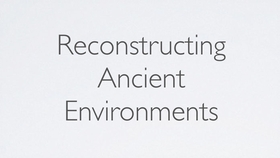### The Pros and Cons of a 401k Loan: What You Need to Know Before Borrowing from Your Retirement Savings
#### Pros and Cons of a 401k LoanA 401(k) loan can be a tempting option for those in need of quick cash, but it comes with its own set of advantages and dis……
#### Pros and Cons of a 401k Loan
A 401(k) loan can be a tempting option for those in need of quick cash, but it comes with its own set of advantages and disadvantages. Understanding the pros and cons of a 401(k) loan is crucial for making an informed decision. Below, we will explore the benefits and drawbacks of borrowing from your retirement savings.
#### Pros of a 401k Loan
1. **Access to Funds**: One of the most significant advantages of a 401(k) loan is the immediate access to funds. If you find yourself in a financial bind, borrowing from your 401(k) can provide quick relief without the lengthy approval processes associated with traditional loans.
2. **Lower Interest Rates**: The interest rates on 401(k) loans are often lower than those of credit cards or personal loans. This can make borrowing more affordable, as you are essentially paying interest back to yourself rather than to a lender.

3. **No Credit Check**: When you take out a 401(k) loan, there is no credit check involved. This means that your credit score won’t be impacted, making it an attractive option for those with poor credit histories.
4. **Flexible Repayment Terms**: 401(k) loans typically offer flexible repayment terms. Most plans allow you to repay the loan over a period of five years, and if the loan is for the purchase of a primary residence, the repayment period may be even longer.
5. **No Tax Penalties**: Unlike early withdrawals from a 401(k), which can incur hefty tax penalties, loans do not have these penalties as long as they are repaid according to the plan's terms.
#### Cons of a 401k Loan

1. **Impact on Retirement Savings**: One of the most significant drawbacks of a 401(k) loan is the potential impact on your retirement savings. When you borrow from your 401(k), the money is taken out of your investment portfolio, which can hinder your long-term growth potential.
2. **Repayment Risks**: If you leave your job or are terminated while you have an outstanding loan, you may be required to repay the full amount immediately. If you cannot repay it, the remaining balance could be considered a distribution, leading to taxes and penalties.
3. **Opportunity Cost**: The funds you borrow will not be invested in the market during the loan period. This means you could miss out on potential investment gains, which can significantly affect your retirement savings over time.
4. **Limited Borrowing Amount**: The IRS limits the amount you can borrow from your 401(k) to either $50,000 or 50% of your vested balance, whichever is less. This may not be enough for those facing significant financial challenges.

5. **Potential Fees**: Some 401(k) plans may charge fees for taking out a loan, which can add to the overall cost of borrowing. It’s essential to review your plan's specific terms and conditions.
#### Conclusion
In summary, the pros and cons of a 401(k) loan highlight the importance of careful consideration before borrowing from your retirement savings. While the immediate access to funds and lower interest rates can be appealing, the potential impact on your long-term financial health cannot be overlooked. Always consult with a financial advisor to weigh your options and determine the best course of action for your financial situation.